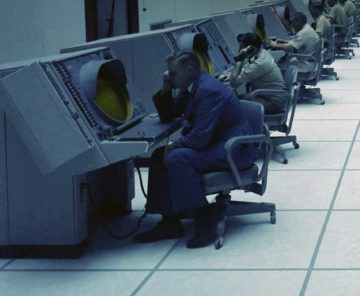Chris Knight in Aeon:
 When I first came across Chomsky’s linguistic work, my reactions resembled those of an anthropologist attempting to fathom the beliefs of a previously uncontacted tribe. For anyone in that position, the first rule is to put aside one’s own cultural prejudices and assumptions in order to avoid dismissing every unfamiliar belief. The doctrines encountered may seem unusual, but there are always compelling reasons why those particular doctrines are the ones people adhere to. The task of the anthropologist is to delve into the local context, history, politics and culture of the people under study – in the hope that this may shed light on the logic of those ideas.
When I first came across Chomsky’s linguistic work, my reactions resembled those of an anthropologist attempting to fathom the beliefs of a previously uncontacted tribe. For anyone in that position, the first rule is to put aside one’s own cultural prejudices and assumptions in order to avoid dismissing every unfamiliar belief. The doctrines encountered may seem unusual, but there are always compelling reasons why those particular doctrines are the ones people adhere to. The task of the anthropologist is to delve into the local context, history, politics and culture of the people under study – in the hope that this may shed light on the logic of those ideas.
The tribe shaping Chomsky’s linguistics, I quickly discovered, was a community of computer scientists during the early years of the Cold War, employed to enhance electronic systems of command and control for nuclear war and other military operations. My book Decoding Chomsky (2016) was an attempt to explain the ever-changing intricacies of Chomskyan linguistics within this specific cultural and historical setting.
More here.
